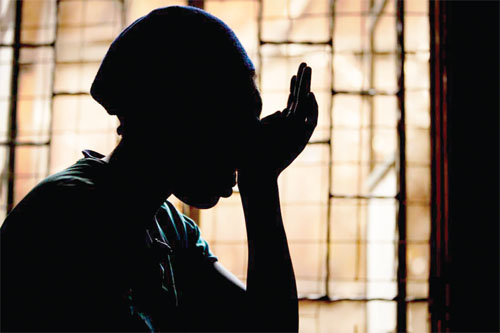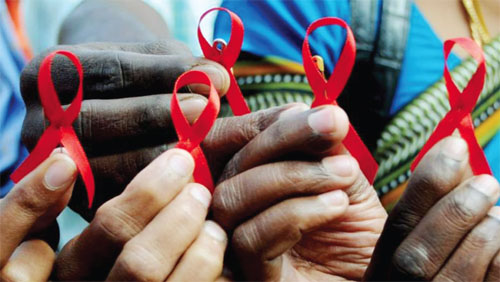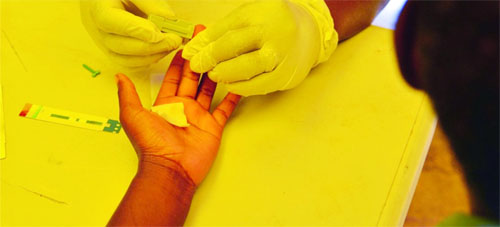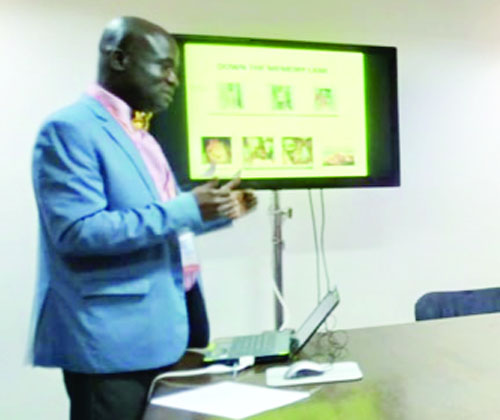
Adolescents living with HIV; To disclose or not?
Imagine you have to tell your adolescent child that he or she is HIV positive. How do you go about it? How would your child feel? That is the dilemma that a 33-year-old mother was confronted with.
Advertisement
“I cannot tell her she is HIV positive. I feel very sad about this and it is an ordeal I go through every day. How and what do I say,” she said with a heavy sigh. Although crestfallen, she hopes to gather the courage to let her child know the truth in future.
In a country where stigma and discrimination of people living with HIV and AIDS
WHO guidelines
The World Health Organisation (WHO) has developed a guideline on HIV disclosure counselling for children up to 12 years of age. This is to help healthcare workers support children who are 12 years and younger, and their caregivers, on the disclosure of HIV status.
The guidance is part of a comprehensive approach to the physical, emotional, cognitive and social well-being of a developing child following the child's own diagnosis of HIV or that of a parent
In the almost four decades of the HIV and AIDS epidemic
For instance, in Ghana, the national HIV prevalence rate is at 1.8 per cent; Prevention of
However, there is an emerging clinical challenge coined as “disclosure spectrum,” — when to disclose to a child (who has had a mother-to-child transmission of HIV) that he or she has the disease.
There are three groups under the disclosure spectrum. These are Dependent (2-6 years), Semi-dependent (7-14 years) and Independent (15-19 years) according to an HIV Paediatrician.
 The West and Central Africa (WCA) region has an estimated 540,000 children living with HIV
The West and Central Africa (WCA) region has an estimated 540,000 children living with HIV
Challenges of disclosure
A Paediatric/Adolescent HIV Specialist, Dr Anthony Enimil, said most of
Caregivers/parents are not willing to disclose the HIV status to their children because of concerns about the child's ability to understand, parental sense of guilt, and fear of social rejection and stigmatisation.
He described a scenario where an adolescent asked a doctor why he had to take some medication and the mother started sign language to caution the doctor not to reveal the truth.
He said the adolescence HIV Clinic at the Komfo Anokye Teaching Hospital (KATH) sees more than 215 HIV positive adolescents.
Dr Enimil said that disclosing an adolescent’s HIV status should be
“Generally, it is believed that between seven and 12 year-olds, disclosure should be done preferably by the caregiver or parent. Information should start from non-specifics to specifics, bearing in mind the adolescent’s demeanour.
Trained counsellors can be consulted to support when caregivers are still not able to disclose and the paediatrician should coordinate this,” he said.
The best approach for better adherence, Dr Enimil said, was for the adolescent to know why he or she takes medications, but full disclosure depends on
“Some may not understand fully and may go around telling friends what new information they have. Some mothers also think they will be blamed by their children for infecting them with a disease such as HIV. The older they grow, the more sophisticated they get and non-disclosure can lead to rebelling and poor adherence,” explained Dr Enimil.
For those in boarding houses, boarding facilities are more challenging because drugs must be taken with food.
“Most adolescents with HIV are from very poor families and survive mainly on food provided by
Furthermore, Dr Enimil said some clinic appointments are within school periods and, therefore, asking for permission when the school authorities do not know exactly why adolescents have to go for frequent review is another challenge.
“Currently, there are very few, if any, formally trained school authorities to handle HIV confidentially and the repercussion of an adolescent’s status being inadvertently disclosed cannot be underestimated,” he noted.
 Test kits for diagnosing HIV should be available at health centres
Test kits for diagnosing HIV should be available at health centres
Realities of disclosure
“It’s difficult - I can’t tell my child about HIV status.” A 54-year-old HIV positive father in an interview said he had not told his eight-year-old son that he (son) is positive because he believed his son was too young to understand. He is hopeful that by the time his son reaches age 15, he would have the courage to tell him his status.
“I am worried about my son’s status. I keep asking: why? My eldest child has been asking why his junior brother has been taking some medicines, but I could not tell him the reason. I only told him I will tell him the truth later.”
A 33-year-old woman shares the same sentiment. Her child, who is HIV positive, is nine years and she is waiting until the child is 12 years before she can reveal the truth. Although the child has been asking questions about the medication, she said, “He has an ear problem so anytime he asks about the medicine, I tell him it is medicine for his ears.”
However, there are caregivers who were able to inform their children about their HIV status. A 45-year-old man taking care of his deceased sister’s son said two years ago, after counselling at the Korle Bu Teaching Hospital, his nephew, now 17, got to know his status.
He said his nephew received the news of his HIV status ‘well’ because he was counselled and the manner in which the doctor presented the news made it easy.
“He is leading a normal life. He does not show that he is worried about it. The only problem is that sometimes, he forgets to take his medicines,” he said.
“Two years ago, my child and I ‘mourned’ again when he was informed about his HIV status. We cried and cried” said a 38-year-old mother.
She said it was a sad moment for her and her child who was 12 years old then. However, she said they were doing well now.
Some HIV infected adolescents are sexually active not only for their own sexual desires but for survival. Dr Enimil shared a story of an adolescent who got pregnant because the man supporting her with money and food decided not to be ‘Father Christmas’. He impregnated her and she has since been delivered of a baby boy.
Just as in the story of the 54-year-old man, in most families, other siblings are HIV negative because the mothers took medication during pregnancy. So often, the uninfected and undisclosed sibling keep wondering why only one of them is always taking medication.
These, he said, may bring about family issues since the HIV infected adolescents seemed to be favoured by the parents which
 Paediatric/Adolescent HIV Specialist, Dr Anthony Enimil
Paediatric/Adolescent HIV Specialist, Dr Anthony Enimil
Grim statistics
Despite the gains made in the fight against HIV and AIDS, the West and Central Africa (WCA) region shares one-third of the global burden of HIV among children (0-14) and one-fourth of the global burden of HIV is among adolescents (10-19). UNICEF analysis of UNAIDS 2017 data indicates the region is also lagging behind in key paediatric AIDS prevention and treatment interventions. Eight out of 10 children are not receiving antiretrovirals in WCA and the region has the second highest burden (25 per cent) of children living with HIV (an estimated 540,000 children are living with HIV).
According to Dr Enimil, some mothers for some reasons either do not attend
He said sometimes, the kits for testing for HIV in pregnancy are not available and mothers go on to deliver without being tested. It is only when their children start showing signs of HIV that they get tested.
Therefore, in order to step up the pace towards the elimination of Mother-to-child transmission of HIV (eMTCT) and achieving 90-90-90 for children and adolescents in Ghana, Dr Enimil said efforts should be made to sensitise all pregnant women to visit clinics where testing can be done and necessary action taken.
Additionally, medication for children should also be available for quick access. Test kits for diagnosis should be available at health centres to rule out the disease.
Sankofa
Sankofa (Akan language literally translated to mean ‘go and reclaim’) is a study conducted by Paintsil et al in 2015 to find out HIV knowledge, stigma and illness beliefs among paediatric caregivers in Ghana who have not disclosed their child’s HIV status. The concept is grounded in the traditional belief of the “Akan” tribe of Ghana of the need for
The study found out that most of the caregivers had inaccurate HIV transmission knowledge and high level of perceived HIV stigma. Furthermore, HIV positive status and low level of formal education were significantly associated with HIV knowledge and stigma perception.
Support for adolescents is important
The WHO notes that adolescents living with HIV go through psychosocial stress over a long period of time. That, the organisation said, “may be related to the initial diagnosis and disclosure of their HIV status; the emotional and financial strain of long-term care and adherence to treatment; coping with stigma and discrimination” among others.
The WHO suggests that providing psychosocial support to adolescents living with HIV is essential. All adolescents need support in coping with developmental issues.
Writer’s email: [email protected]



